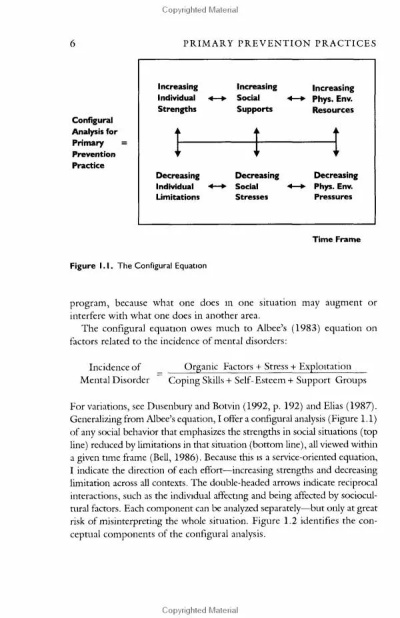The Significance and Application of Principles in Our Lives explores the importance of principles in guiding our actions and decisions. Principles serve as a moral compass, helping us navigate through life's challenges and make choices that are in line with our values. They provide a sense of direction and purpose, giving us the confidence to stand by our beliefs. In various aspects of life, such as work, relationships, and personal growth, principles play a crucial role. They influence our behavior, shape our character, and contribute to our overall well-being. By adhering to principles, we can build strong and meaningful relationships, achieve success in our careers, and lead a fulfilling life. However, it is important to note that principles are not static and may need to be adjusted as we grow and encounter new situations. We should continuously reflect on our principles and ensure they remain relevant and true to ourselves.
Principles are the guiding lights that shape our actions, decisions, and beliefs. They serve as the foundation upon which we build our lives, and they have a profound impact on our personal and professional growth. In this article, we will explore the importance of principles and how they can be applied in various aspects of our lives.
I. The Definition and Nature of Principles
Principles are fundamental truths or values that we hold dear and that govern our behavior. They are not arbitrary rules but are based on our moral, ethical, and philosophical beliefs. Principles can be individual or collective, and they can be religious, cultural, or personal in nature. For example, the Golden Rule "Do unto others as you would have them do unto you" is a principle that is shared by many religions and cultures. It is a principle that emphasizes the importance of treating others with kindness, respect, and empathy.
II. The Importance of Principles in Our Lives
A. Guide Our Actions and Decisions
Principles provide us with a clear direction and purpose in life. They help us make decisions that are consistent with our values and beliefs. Without principles, we would be adrift in a sea of confusion and uncertainty, and our actions would lack a sense of purpose and meaning. For example, if we believe in honesty and integrity, we will be more likely to tell the truth and keep our promises, even when it is difficult or inconvenient.
B. Build Trust and Respect
Principles are the building blocks of trust and respect. When we act in accordance with our principles, we earn the trust and respect of others. People are more likely to trust and respect those who are consistent in their actions and who stand by their beliefs. On the other hand, those who violate their principles or act unethically will lose the trust and respect of others.
C. Provide a Sense of Identity and Purpose
Principles give us a sense of identity and purpose in life. They help us define who we are and what we stand for. When we live by our principles, we feel a sense of pride and satisfaction in our achievements. Our principles also give us a reason to get up in the morning and work towards our goals.
III. The Application of Principles in Different Areas of Our Lives
A. Personal Life
In our personal lives, principles can help us in many ways. For example, we can apply principles of self-care and self-love to take care of our physical and mental health. We can also apply principles of kindness and compassion to build better relationships with our family, friends, and colleagues. Additionally, we can apply principles of honesty and integrity to build a good reputation and earn the trust of others.
B. Professional Life
In our professional lives, principles are equally important. We can apply principles of职业道德 to conduct ourselves in a professional and ethical manner. We can also apply principles of leadership and teamwork to work effectively with others and achieve common goals. Additionally, we can apply principles of innovation and creativity to come up with new ideas and solutions to problems.
C. Social and Political Life
In our social and political lives, principles can help us make a positive impact on society. We can apply principles of social justice and equality to fight for the rights of those who are marginalized and oppressed. We can also apply principles of democracy and freedom to promote a more just and inclusive society. Additionally, we can apply principles of environmentalism and sustainability to protect the planet for future generations.
IV. The Challenges of Adhering to Principles
A. Peer Pressure and Social Conformity
One of the challenges of adhering to principles is peer pressure and social conformity. We often feel pressured to conform to the norms and expectations of our peers, even if they go against our principles. This can be especially difficult in situations where we are in a minority or when we are facing strong opposition.
B. Temptation and Greed
Another challenge of adhering to principles is temptation and greed. We often face situations where we are tempted to violate our principles for personal gain or advantage. This can be especially difficult when we are faced with financial, career, or personal pressures.
C. Changing Circumstances and Values
Finally, another challenge of adhering to principles is changing circumstances and values. Our values and beliefs may change over time due to new experiences, knowledge, and perspectives. This can make it difficult to adhere to the same principles that we once held dear.
V. Conclusion
In conclusion, principles are the guiding lights that shape our lives. They are essential for our personal and professional growth, and they have a profound impact on our relationships and society. While adhering to principles can be challenging, it is essential for building trust, respect, and a sense of identity and purpose. We should strive to live by our principles and to apply them in all areas of our lives. By doing so, we can make a positive impact on ourselves, others, and the world around us.








 京公网安备冀I陇ICP备2022000946号-1
京公网安备冀I陇ICP备2022000946号-1
还没有评论,来说两句吧...